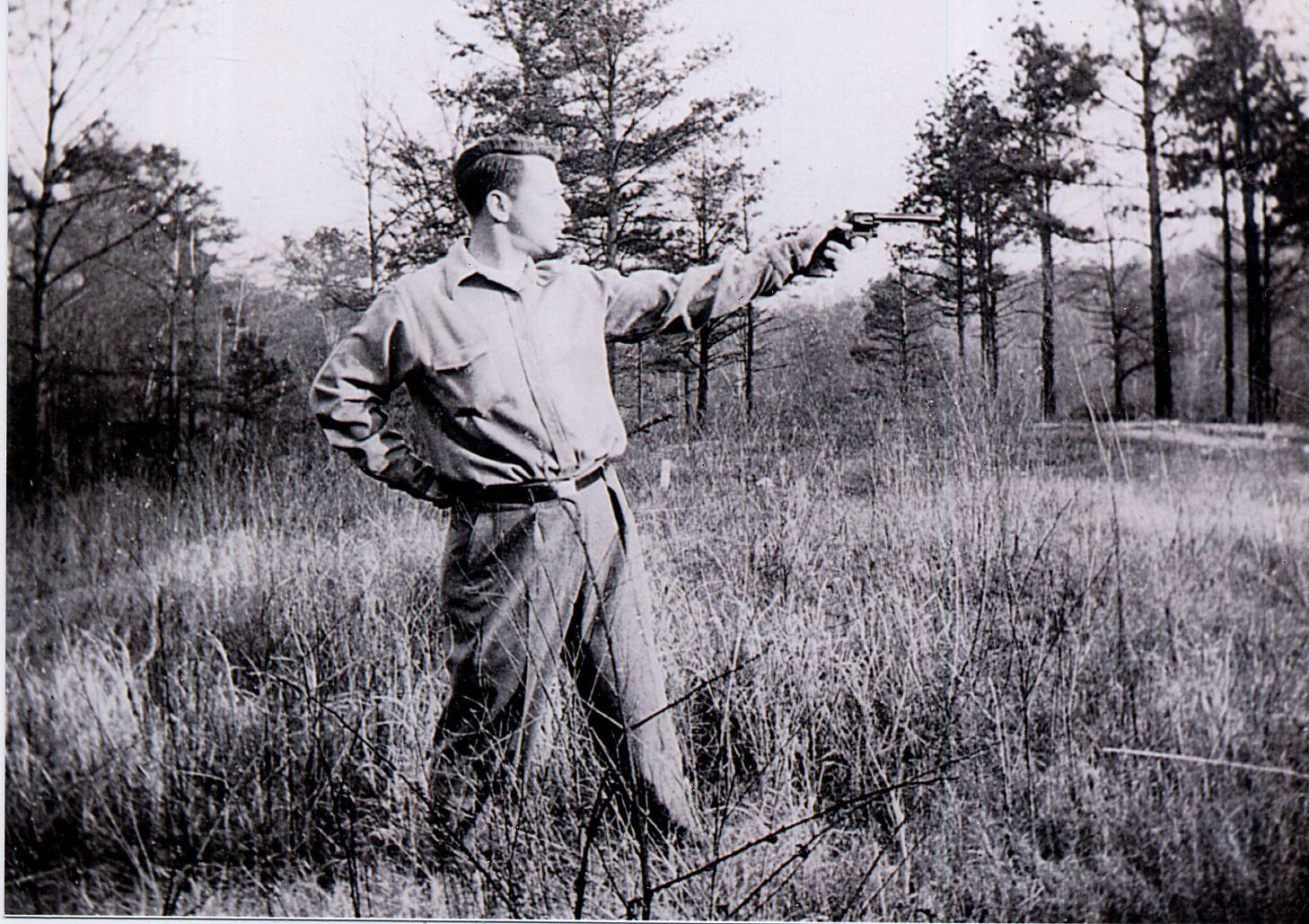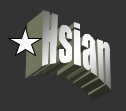We had now flown twenty missions, and our hope of quickly completing another five and rotating home was set aside. this was a disappointment, but it was kind of all right, since we had been given an opportunity to fly with a good outfit with a good combat record. We were scheduled to fly a planned intruder mission every two weeks or so. The missions were successful attacks on truck convoy movements, and one train that we caught in a protective revetment thirty miles or so north of Xinxiang. Our only means of attacking the locomotive was head-on, and we made maybe four determined passes. On the last pass we just missed a water tank next to the track, which darkness had prevented our seeing on the earlier passes. With that miss we were lucky. There had been other times on other flights when we had almost hit obstructions -- high smokestacks more than once and tall trees many times over. Low-level blind flying hadn't ever been thought of before 1945, and our equipment was not designed for it. Flying night intruders was proving to be a hazardous business.
We were outfitted with some special equipment to improve our chances of survival if we were shot down. At briefing prior to a mission, we were issued a vest, much like a bird hunter wears, with loops sewn on the front of it for carrying shotgun shells. Our vests were made the same way, only the loops were
 filled
with many
rolls of Chinese currency, totaling $25,000 American dollars. In
addition, there were pockets for maps, for first aid supplies, a sewing
kit, a knife and spoon, a razor, a compass, morphine, a flare, a pair
of socks, matches, soap, water purification tablets, Atabrin for
malaria, and emergency rations. There were other items I have
forgotten and, all in all, it was a pretty bulky get-up. In
addition, in combat we always carried a sidearm -- in my case, a Colt
.45 automatic pistol that I fired expertly with. I sometimes
carried a trench knife, as well.
filled
with many
rolls of Chinese currency, totaling $25,000 American dollars. In
addition, there were pockets for maps, for first aid supplies, a sewing
kit, a knife and spoon, a razor, a compass, morphine, a flare, a pair
of socks, matches, soap, water purification tablets, Atabrin for
malaria, and emergency rations. There were other items I have
forgotten and, all in all, it was a pretty bulky get-up. In
addition, in combat we always carried a sidearm -- in my case, a Colt
.45 automatic pistol that I fired expertly with. I sometimes
carried a trench knife, as well.The 14th Air Force in China, unlike any other theater of combat, got most of its downed airmen back. If you hit the ground alive, you stood a 90% chance of walking out with the help of friendly Chinese. The $25,000 cash could be a detriment in case of bandits, who operated on a large scale in some parts of the interior. They would kill an airman for the money. In that event we carried a signature draft authority that could be drawn as high as $100,000 for positive safe conduct to an American base. We were also issued at that time a flak vest and a flak helmet for personal protection. I sometimes wore the vest, but not the helmet, which wasn't accommodating to the use of my intercom headset.
All of these things were reassuring, but still we lost 25% of our aircrews in the nine months we were in the 426th. These casualties were usually, but not always, new replacement personnel. When we went through the night fighter transition course at Hammer Field, California, we lost 25% of our class in just six weeks of training. This was partly due to night training accidents involving extended low-level flights where we were required to stay under 200-foot altitude, and partly due to poor maintenance on our aircraft. The planes were antiquated A-20s, and there were not enough of them. Training flights were scheduled seven days a week, day and night, with no down time for even routine line service.
Flying intruder missions, I worried about my chances if Ab got hit. At low altitude, if he takes one hit and the plane goes in, I go in. I talked to him about wearing a flak jacket and helmet, but they were bulky and uncomfortable and he wouldn't do it. Once, when preparing to take off on a mission, I climbed up into his cockpit from the ground and dressed him in a flak suit and helmet. He sat grinning while I did this, and then I got back into my compartment, ready for take-off. After pre-flight routine and the tower's clearance to take off, Ab looked back and me, stilling grinning, and took off the helmet and flight jacket. I never bothered him again about it.
The 426th, through flight rotation, had gotten some good men into the squadron's outpost at Ankang. They had no experience, but started flying intruders in February right after we came to Hsian. They had some losses that would work on all of us psychologically. Like when a crew failed to return from a mission, and no one knew why, or how, or where, or anything. Word about the fate of the mission would reach us later, through the OSS or the underground, and then again, maybe not. Once, good friends Matt Rabb and his pilot Hazelberg were reported missing. Hazelberg's body was found a few days later; he had bailed out in friendly territory, landed safely, removed his chute and, in the darkness, walked off a cliff. Neither the plane nor RO Rabb were heard from until six weeks later, when Matt made his way from deep in Japanese territory with the whole story. It seems that during their mission, their intercom went out. There was no way for radar navigation to talk with the pilot or vice versa. Hazelberg had tried to find his way back to Ankang, but got lost. He knew he was in friendly territory, so he put the plane on automatic pilot and bailed out. Matt didn't know Hazelberg had left the plane, but since they were heading steadily east, he assumed that Hazelberg had gotten his bearings and that they had resumed the mission. The plane flew a long way into Japanese held territory with no pilot at the controls before the engines ran out of gas and Matt bailed out. The Chinese Communist underground helped Matt make his way back to our lines.
Another crew in Ankang didn't pull up soon enough after strafing a line of trucks and hit a truck. The P-61 survived the impact and made it back to a safe landing with extensive damage to the bottom of the crew nacelle and the tail booms. For every one of these explained incidents, there were one or two crews lost, and we never heard what happened to them. This had a way of working on our sense of well-being. I had personally never been afraid when we were in the aircraft. It isn't rational, but even when we were being bombed during take-off at Laohokow, I seemed to view the event like it was a scene in a movie. Being in the aircraft flying, being fired upon and the plane being hit was somehow not frightening, but was startling and sometimes kind of interesting -- particularly watching tracers looping up, up and at us. This kind of crazy confidence never changed for me. I think Ab was the same way.
I did experience apprehension when we found ourselves idle between missions. I have always had a good imagination and in Hsian it became very active, playing with unpleasant mission possibilities. I began to have trouble sleeping, particularly the day before a scheduled mission, and would sometimes feel considerable anxiety when having to get into the airplane. But when the engines started, it was okay -- no apprehension, actually looking forward to the mission itself. I took great care to conceal this apprehension and maintained an air of swaggering bravado. I remember a lot of other aircrew people acting with the same bravado.
At the end of May, we needed just one more mission to be eligible for rotation to the States. The 426th Squadron Headquarters knew this, but we didn't know quite what to expect. We would be the first crew in the squadron to be rotated and neither Ab nor I thought that Maj. Hellriegel wanted to do us any favors.
It was at this juncture that Col. Coleman called us in for a conference. He began by thanking us for having made a valuable contribution to the fighter wing's efforts and then pointed out that since we were close to rotation we should bring in a replacement crew and put them through transition. We told the colonel that we were "D" flight leader and one of these crews could be brought to Hsian, but they were very short on experience. Maybe no more than six or seven missions all together for the three crews. Col. Coleman listened and said, "Bring the whole flight, and put them all through transition to intruders." This meant some extended training, and more time in China before going home, but "D" flight was our responsibility and we owed Col. Coleman for giving us a chance.
